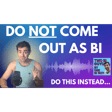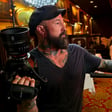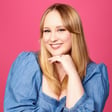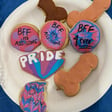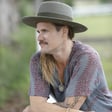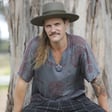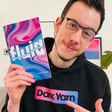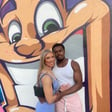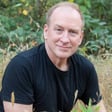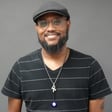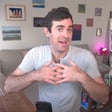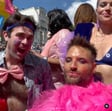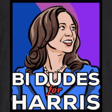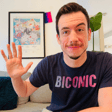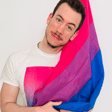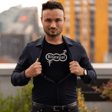
Florence Given on Girlcrushes, Power Dynamics, and the Digital Self
This week we chatted with author, illustrator, and activist Florence Given, aka “Floss”, about her new (very bisexual!) novel, GIRLCRUSH. Floss gained an online following leading up to her first book, “Women Don’t Owe You Pretty”, a non-fiction feminist primer, before transitioning to fiction and highlighting sexual fluidity in “Girlcrush”.
We talked about Floss’s bisexual journey, the biphobia and bi-erasure she’s experienced since coming out, the differences she’s encountered dating men v. women, how not wanting to play into toxic and gendered power dynamics in relationships can lead to being overly cautious, why she wanted to create a “messy” bisexual character who gets confused and makes mistakes, and the unexpected joys that have come with a queer identity. We also discussed what it’s like to be a social media influencer today, the difference between our digital self and our reality, parasocial relationships between creators and their fans, how to deal with online trolls and negativity, and the pleasant surprises that come with a public persona. Finally, we touched on consent, how to recognize and get out of an abusive relationship, and how to reclaim your own power and authenticity.
Follow Floss on Instagram: https://www.instagram.com/florencegiven/
Visit Floss's website: https://www.florencegiven.com/
Buy GIRLCRUSH: https://bookshop.org/books/girlcrush/9781914240522
Two Bi Guys is produced and edited by Rob Cohen
Created by Rob Cohen and Alex Boyd
Logo art by Kaitlin Weinman
Music by Ross Mintzer
We are supported by The Gotham
Made on Zencastr #MadeOnZencastr
Use my special link zen.ai/twobiguys1 and use twobiguys1 to save 30% off your first three months of Zencastr professional. #madeonzencastr
Rob is hosting a Bi+ trip to coastal Maine in June 2023! First 10 to book get $200 off: https://trips.trovatrip.com/trips/united-states-with-rob-cohen-jun-2023
